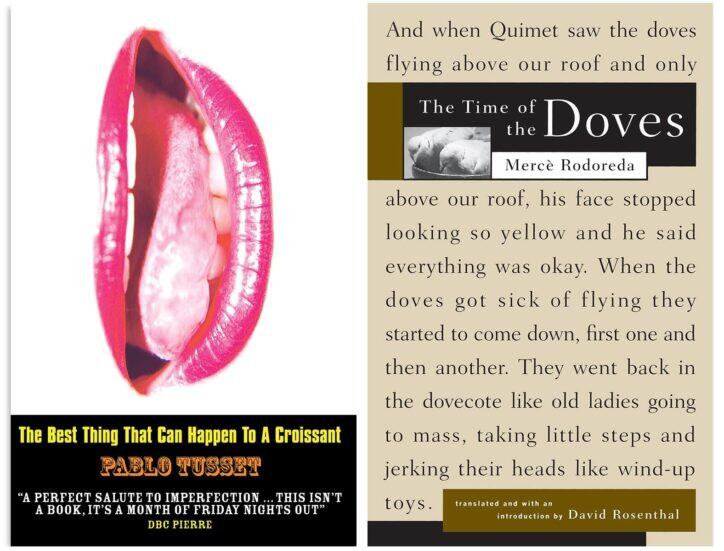Immerse yourself in Barcelona before and after your visit.
From stories about the Spanish Civil War and its terrible aftermath to tales of modern-day Spain, these books and films reveal what it means to be Spanish and Catalan and to have lived in a city once wracked by turmoil.
Read: Homage to Catalonia by George Orwell
George Orwell’s life––and certainly his writing-–was strongly influenced by his time in Spain fighting against the Nationalist army led by future Fascist dictator Francisco Franco. Orwell’s journals directly document his time at war in Catalonia, and his first-person narrative provides a view of war-torn Barcelona that today may seem wholly foreign. Franco and his Fascist army eventually won the civil war, and this book is a worthy read for context on this dark time in the history of Spain and Catalonia.

Read: The Shadow of The Wind by Carlos Ruiz Zafón
Daniel Sempere is ten years old when his father, a bookseller in post-civil war Barcelona, takes him to a mysterious labyrinth filled with treasured but forgotten tomes and tells him to pick one that he will then dedicate his life to preserving. What follows is a tale of a young man who discovers a mysterious person––or perhaps creature––is destroying all remaining works of Julián Carax, the author whose book he now protects. The Shadow of the Wind’s story of life, death, and history may be fictional, but its setting in a war-torn Spain is forceful, and the fact that it has sold over 15 million copies hints at its compelling universe.
Read: The Best Thing That Can Happen to a Croissant by Pablo Tusset
Pablo “Baloo” Miralles is the lazy, debaucherous scion of a well-to-do Spanish family. When his elder (and more accomplished) brother inexplicably disappears, Baloo suddenly finds himself pulled into the dealings of the family’s powerful financial firm, a turn of events that inspires him to try to locate his missing sibling. Within this satirical quasi-detective story is a modern-day tale about the city of Barcelona.
Recommended Fodor’s Video

Read: The Time of the Doves by Mercè Rodoreda
Written by exiled Catalan writer Mercè Rodoreda, The Time of the Doves is a novel about a shopkeeper named Natalia who endures a controlling husband and an increasingly challenging life during the Spanish Civil War. It’s a story about hope and endurance in the face of great adversity. After the Spanish Civil War, when the Catalan language was banned in public and the culture harshly suppressed, Rodoreda went into exile. In 1962, she published La plaça del Diamant (translated as the Time of the Doves by David Rosenthal in 1981), widely regarded as her masterpiece, and a masterpiece of Catalan literature. It is not your usual account of the civil war in that there is no fighting and no scenes from the front. Instead, we learn about the war from the perspective of a woman whose husband is fighting with the Republicans while she works hard to feed herself and her two children. Writer Gabriel García Márquez learned Catalan just to read this book and declared it “the most beautiful novel published in Spain after the Civil War.” The author, who died in 1983, is also known for her first novel, Aloma. This is considered to be a classic of Catalan literature and is required reading in Catalan secondary schools.
Read: Nada by Carmen Laforet
In the aftermath of the Spanish Civil War, a young woman named Andrea moves to Barcelona so that she can attend University on a government scholarship. Once there, she finds herself living in her grandmother’s home, a decrepit building haunted by the emotionally and physically violent confrontations and betrayals of the array of family members who reside there. Nada is considered to be a Catalan Existentialist classic, a rare volume from a time when Franco’s censors suppressed novels from Catalan writers and tamped down on anything which showed how desperate life could be.
Watch: Todo Sobre Mi Madre (All About My Mother) directed by Pedro Almodóvar
After Manuela’s 17-year-old son Esteban is killed before her eyes, she decides to move to Barcelona to find his trans father, who doesn’t know that Esteban exists. It’s a brilliantly directed tale that sensitively examines a variety of complex topics such as grief, addiction, gender identity, and the impacts of HIV. It also earned director Pedro Almodóvar the Best Director award at the 1999 Cannes Film Festival and the Academy Award for Best Foreign Language Film in 2000.
Watch: Biutiful directed by Alejandro González Iñárritu
Iñárritu’s fourth film tells the story of a single father of two (played by Javier Bardem) in Barcelona who finds out he has terminal cancer and tries to find someone to care for his children before his death. While melancholy, this is also a story of redemption as a father seeks a better life for his children.
Watch: A Gun in Each Hand directed by Cesc Gay
Catalan director Cesc Gay recruited some top-notch Spanish actors and actresses for this comedy. Told through a series of vignettes, A Gun in Each Hand explores how changing gender roles in Spain impact modern relationships. The central male characters either embarrass themselves directly or suffer some form of emasculation at the hands of their much more clever female counterparts. A Gun in Each Hand speaks to evolving Spanish ideas about masculinity and relationships, and how this evolution can benefit women in Spain.
Watch: Summer 1993 directed by Carla Simón
Director Carla Simón was only six years old when she went to live with her aunt and uncle after her parents died of AIDS. In her debut film, Summer 1993, the character of Frida shares the same fate and goes to live in the Catalan countryside out of Barcelona. In the mid-’90s, Spain had the highest number of AIDS cases in Europe, and this film is a courageous and personal exploration of the tragedy.
Watch: Julia Ist directed by Elena Martin
When Julia, a university student in Barcelona, decides to move to Berlin, she anticipates a life of escape, where she’ll blossom apart from her family and long-time boyfriend. It’s only after settling in Berlin that she realizes it’s not the vibrant place she anticipated, and she isn’t the person she thought she was. Inspired by the lives of the four screenwriters who produced this film and shot on a limited budget, Julia Ist is about growth, identity, and independence, issues that Spain––and Catalonia in particular––still struggle with.



